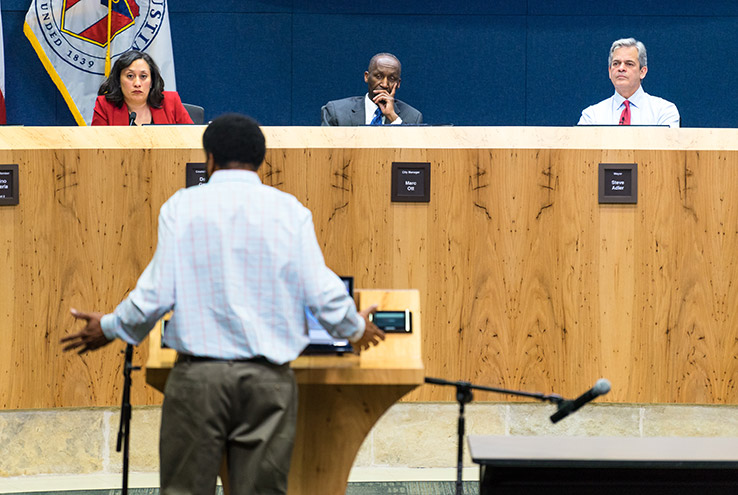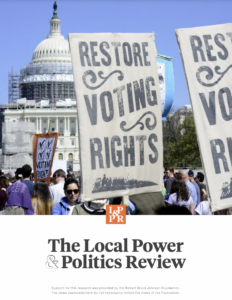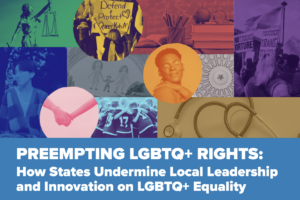Our Issues
Defending Local Democracy
Cities have historically been the birthplace of innovative, equitable, and progressive local policies. From workplace fairness to racial justice, local communities are leading the way when it comes to protecting the health, welfare, and safety of their residents.
Unfortunately, this local progress and innovation is increasingly being blocked, or “preempted,” by state and federal laws, preventing cities from passing ordinances that reflect local views and values. We believe that local communities know what’s best for them, and are working on the front lines with advocates and elected officials across the country, using the power of the law to defend progressive local policies against preemption.

An Attack on Local Democracy
As the level of government closest to the people, local governments are uniquely situated to enact policies that reflect the views and values of their communities. But many state legislatures—often in response to corporate lobbyists and special interest groups—are increasingly turning to preemption to overturn and prevent local laws that would guarantee paid leave, ensure residents earn a living wage, protect the local environment, prevent discrimination, and more.
- From workplace rights to environmental justice to immigration, the impact of preemption spans issue areas. Click here for some resources about preemption organized by topic.
- Our partners at the Local Solutions Support Center have developed messaging toolkits to help advocates learn about and talk about preemption.
- Preemption is becoming more common and more extreme. Click here for information on blanket preemption and punitive preemption.
Preemption Harms Working Families and Impedes Social Justice
Cities have been on the frontlines in the fight to reform the workplace, enacting progressive policies such as paid sick time, minimum wage, ban-the-box, and fair scheduling, all of which have important racial and economic justice implications. Cities were also the first to expand nondiscrimination policies to protect LGBTQ populations. These policies—and many more that ABB fights for—have been targeted by state interference, which stifles policy innovation, blocks racial justice efforts, and hurts working families.
- One of the more disturbing uses of preemption has been to overturn policies passed in majority Black cities that benefit those Black communities, such as minimum wage increases. Even absent that pattern, the abuse of preemption disproportionately affects Black, minority, and immigrant communities.
- New research has demonstrated a link between preemption and life span and health outcomes.
ABB Is Working Around the Country and Across Movements
ABB is helping to lead an innovative, cross-movement national project dedicated to strengthening, protecting, and defending progressive local laws.
- We are working closely with the Local Solutions Support Center and other national and local partners to provide technical assistance to cities and advocates in their fight against preemption.
- We work with legal experts and law professors around the country to develop theories to push back against state interference. Click here to see some of the resulting academic legal research around preemption and click here to see the report outlining new Principles of Home Rule for the 21st Century.
- We consult on and participate in litigation related to preemption across the country. Our brief bank contains preemption related briefs and decisions.
Workplace Rights Hub
Featured Resources
 Two ABB staff-members contributed articles to a new journal, the Local Power and Politics Review, that gathers recent research findings, identifies emerging issues, and identifies data and research needs across various issue areas affected by preemption.
Two ABB staff-members contributed articles to a new journal, the Local Power and Politics Review, that gathers recent research findings, identifies emerging issues, and identifies data and research needs across various issue areas affected by preemption.
Resource Articles
22
states preempt local laws guaranteeing workers access to paid sick days.
20 mil
people live in states that prevent cities from protecting LGBTQ individuals from discrimination.
10
states have passed anti-immigrant laws aiming to ban or punish sanctuary cities.
69%
of voters believe that local communities should be able to improve upon state law.










